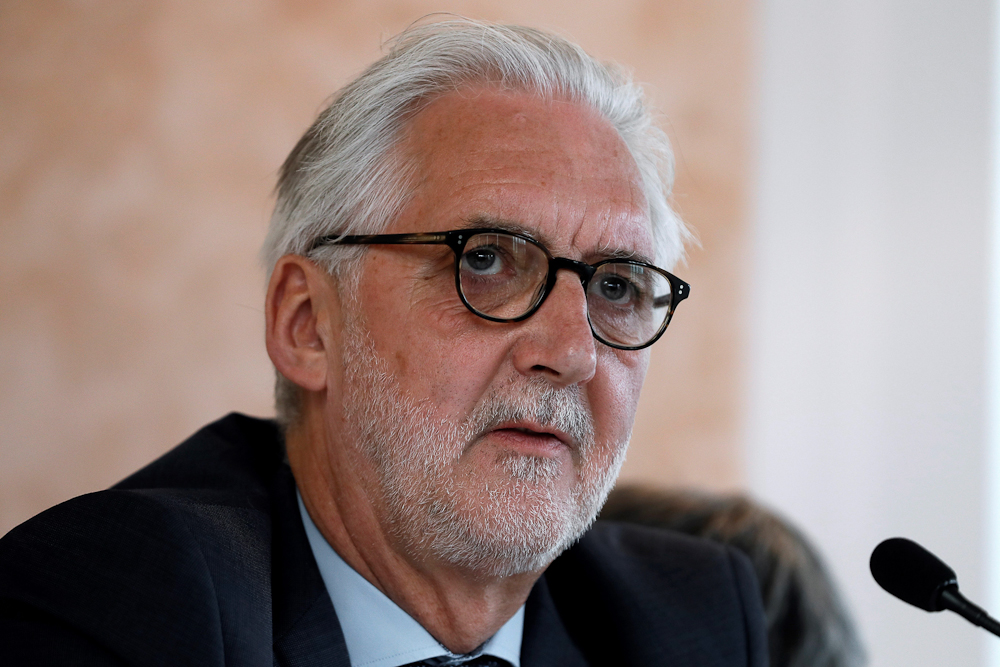Cookson: Cycling is on the right track but we must remain vigilant
UCI president denies that WorldTour is harming lower-level races
The latest race content, interviews, features, reviews and expert buying guides, direct to your inbox!
You are now subscribed
Your newsletter sign-up was successful

UCI president Brian Cookson has said that he believes cycling is on the 'right track' in terms of its anti-doping methods but that the governing body must not rest on its laurels. In an interview with the French newspaper Le Figaro, Cookson, who is coming to the end of his first term, says that confidence is being restored in the sport after the many doping scandals of the 1990s and 2000s.
"In the last three years, I have done my best to restore confidence in our sport. It is not easy with regards to the reputation damage we have suffered in recent years, for the reasons we know," Cookson told Le Figaro.
"We have made considerable efforts to ensure that the entire chain of action against doping is the best possible, independent, and free from conflicts of interest. We have also set up an investigation commission and a new ethical code, with a dedicated committee. I'm not complacent, but I think cycling is on the right track. One can never relax. We know that we must remain vigilant. And we will be."
In the interview, Cookson was asked about one of cycling's most recent issues - that of mechanical doping. In January of this year, Belgian cyclo-cross rider Femke Van den Driessche was found to have a motor in her bike at the World Championships.
This month, engineer Istvan Varjas, who is said to have developed the methods of mechanical doping, told another French publication, Le Monde, that the latest iteration of his invention could give a rider a 15-second burst of power. The Hungarian also hinted that a television investigation would reveal mechanical doping in upper echelons of the cycling peloton.
Asked if he was worried about what might be to come, Cookson evaded answering the question directly but reaffirmed his belief in the testing structure that has been developed in recent years.
"Since my election in 2013, we have invested a lot of time and resources in both the multiplication of controls, but also in the development of a reliable and efficient detection method that is easy and quick to deploy," he said.
The latest race content, interviews, features, reviews and expert buying guides, direct to your inbox!
"Our ability to test so many bicycles in such a short time has transformed our approach in this area. And in all of our disciplines, we will continue to test in a massive way, to ensure that anyone attempting to cheat in this way knows that they are likely to get caught."
Balancing globalisation and heritage
Next year will see some big changes in the calendar, including the introduction of nine new races to the WorldTour. There were meant to be 10, but it was confirmed earlier this week that the Tour of Qatar and the Ladies Tour of Qatar would not be held in 2017 due to a lack of sponsorship interest.
Two new teams will also join the fore, in Bora-hansgrohe and Bahrain-Merida, as well as the rebranded UAE Abu Dhabi – formerly Lampre-Merida. Their introduction to the WorldTour was only possible, however, due to the collapse of the Tinkoff and IAM Cycling teams.
Despite this, Cookson believes that there is more enthusiasm for the sport than there ever was.
"There has never been so much interest in cycling. There are companies all over the world who are interested. And in the heart of the traditional regions, the economic model is a challenge for all that concerns the costs of organisation and operation of teams. We must analyse everything by respecting the heritage and thinking about development," he said.
Cookson also denied that the WorldTour is having an adverse impact on the races in the levels below it, but said that these events must not be neglected.
"I do not accept the criticism arguing that it damages some lower level races. Some traditional races in Europe disappear, but it is the financial difficulties linked to the economic situation in these countries that are the cause. Cycling must change, develop, but, I must also admit, we must not neglect the lower levels."

